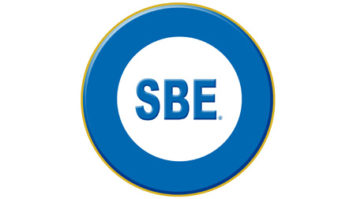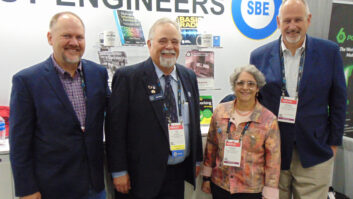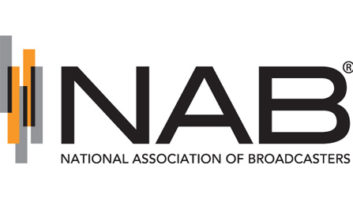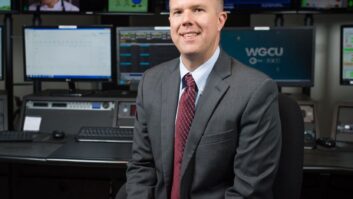Send letters to[email protected].
Looking for Young Engineers? Here’s One
As a young engineer myself, 25 years old, I can tell you that I started in college radio as a broadcast technician learning AoIP, but I was also taught troubleshooting at the component level.
At the University of Indianapolis, I was tested weekly on basic engineering practice of soldering, crimping, cable construction and overall aspects of the field. I was very hands-on in building studios and doing weekly remotes. The job included weekly maintenance of both studio and transmitter facilities, which I was thrilled to do because when studios and transmitters are clean, you’re a happy engineer.
Yes, as a college student and college athlete, being on call 24/7 had its moments. But the overall experience was challenging yet rewarding, because I got hired right out of college as a staff engineer for 10 stations. I’m now a station engineer for one FM and one AM directional.
I owe everything to my college station, WICR(FM). With the likes of their faculty and radio staff, I have no doubt they will keep pumping out new blood into all aspects of radio. The challenge we face today is in keeping the new blood we get and continuing to mold and grow them.
Everyone can be taught and trained, just like we were — but the passion for radio and willingness to learn is something we can build from my generation.
Jason J. Ornellas
Station Engineer
Greater Media New Jersey
Cedar Knolls, N.J.
Unlocking the ‘Mystery Machine’
Apparently nobody from ABC Radio has stepped up yet to describe the New York ”Mystery Machine” — two out of four equipment racks depicted by historian Don Browne in RW’s June 6 edition.
So for those too young to know what he’s asking about, I’ll describe what network master control was and how it functioned, essentially unchanged, from as far back as the 1930s.
Back in the day, ABC, CBS, Mutual and NBC each had master control operations in New York, Chicago and Hollywood, and programs for these networks were sent via telephone lines that were leased from AT&T.
The concept of any master control system is plainly the routing of any source to any destination — or any number of destinations — at any time. This characteristic is clearly shown in Mr. Browne’s photo. Above each meter are two groups of switches. The top group contains two rows of 12 switches with their associated tally lights. They represent 12 sources (such as Studios 1A, 2A, 3B, etc.)
Beneath are another group representing a dozen more sources. With this capability, while, say, the left-hand group (Group-A) is on air, the tech will be setting appropriate Group-B switches to go to air at the next switching interval. So all the sources are either on air or ready to be, as desired. The system continually bounces between Group-A and Group-B settings.
Also, with Master Control, program sources can be can be sent to all eight of the available destinations, thus requiring four identically wired racks in a typical crossbar system. MCR routed both outgoing and incoming programs to their proper destinations.
Oliver Berliner
SounDesign Engineers
Beverly Hills, Calif.
Raise a Glass for Heathkit
It’s too bad that Heathkit and its era are gone (“Healthkit Folds,” radioworld.com, July 26). Many of us in engineering learned quite a bit from building a Heathkit or two. The pride in soldering the wires and PCB assemblies to form a finished product was always great. Times are changing to the point that in a few years Radio Shack won’t even carry items like soldering irons. It’s even getting hard to find parts at Fry’s.
Bill Ammons
Director of Sales and Marketing
Micronetixx Communications
Lewiston, Maine
A Kit That Wouldn’t Quit
I built probably 100 Heathkits over the years, including three color TV sets. Heath incorporated features into their kits that could be found nowhere else, at any price. It was always a thrill to have a kit work the first time, but if necessary, troubleshooting was easy. Most problems could be traced to cold solder joints or silly mistakes made by working on a kit when one was tired.
John Bauer
Retired Engineer
ABC News
Burke, Va.











